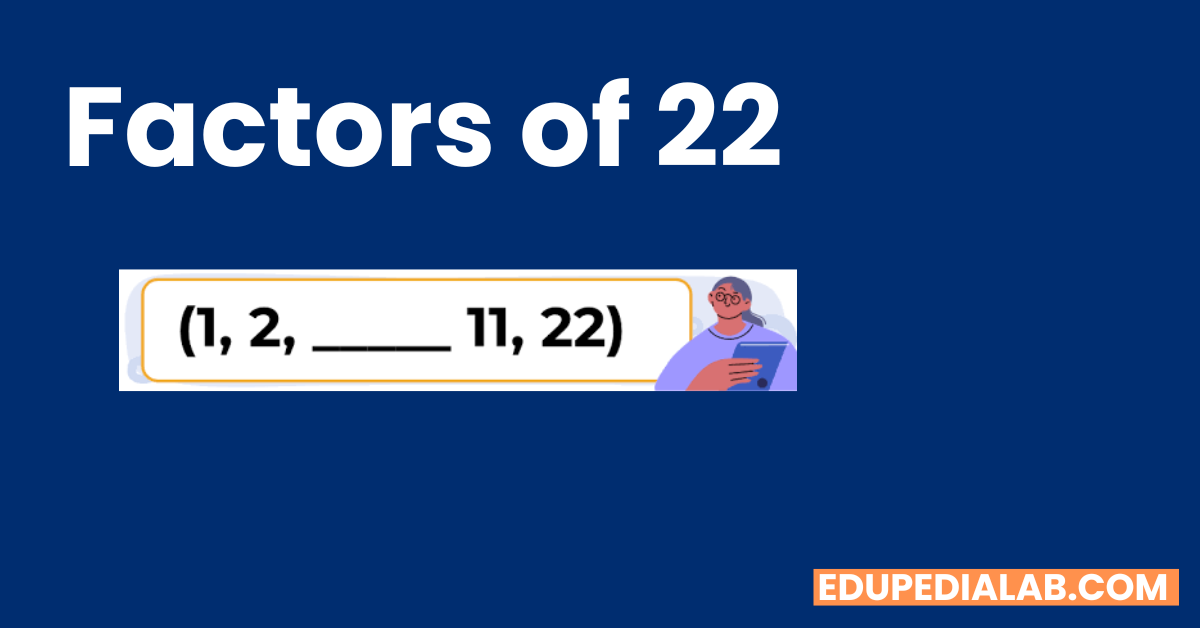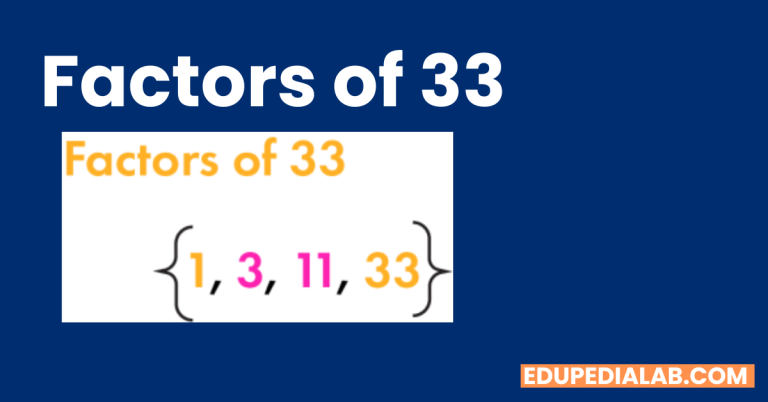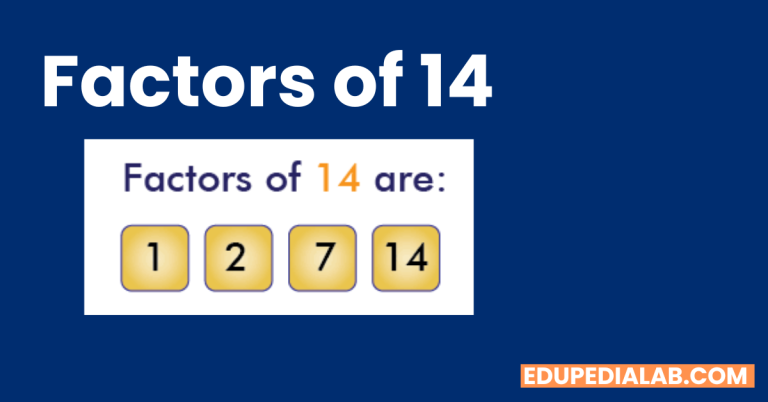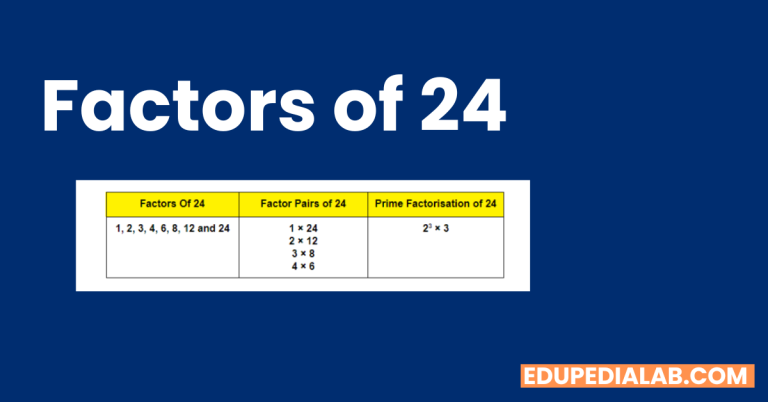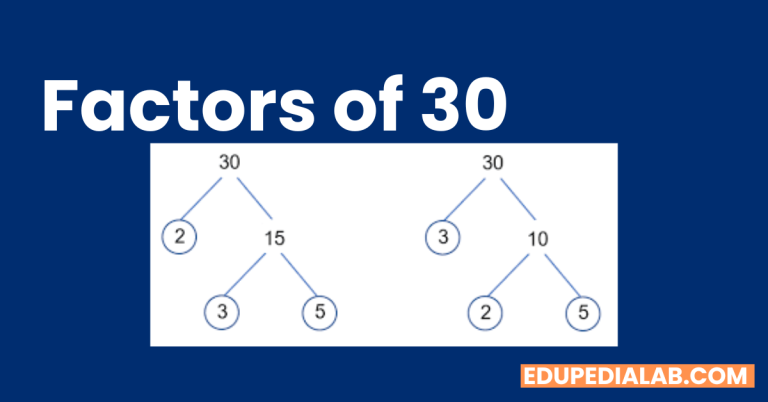Factors Of 22 (Explained By Experts)
Factors Of 22
In the world of mathematics, factors play a crucial role in understanding the properties and relationships of numbers. In this article, we will delve into the factors of 22, exploring the divisors that make up this unique number. By examining the various factors and their significance, we can gain a deeper understanding of the mathematical landscape. So, let’s embark on this journey to unravel the factors of 22.
The unique thing about knowing the Factors Of 11 is that number 11 is a prime number.
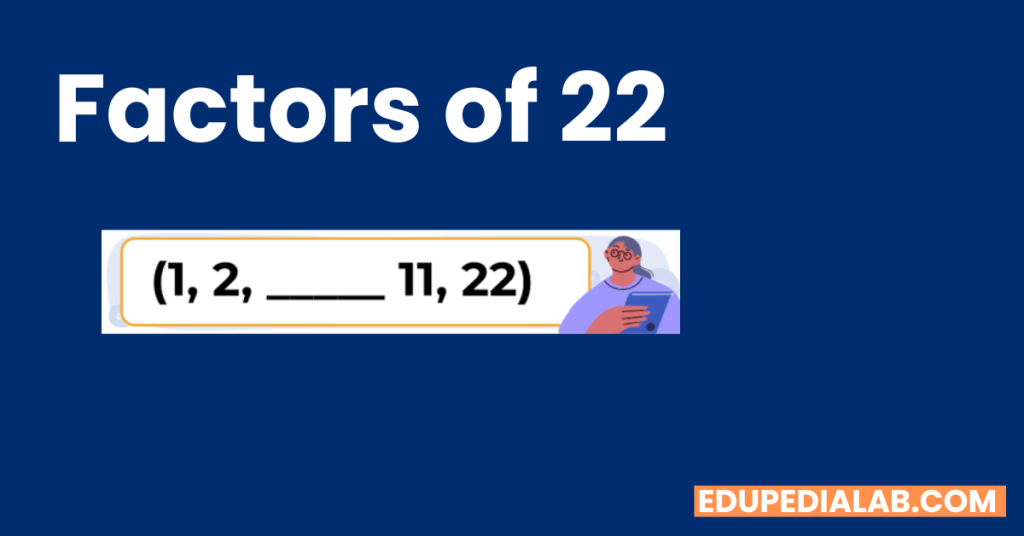
Factors Of 22: What Are They?
Before we delve into the factors of 22, let’s understand what factors actually are. In mathematics, factors are the numbers that divide evenly into a given number without leaving a remainder. In other words, they are the divisors of a number. For instance, the factors of 12 are 1, 2, 3, 4, 6, and 12. These numbers can be multiplied together to obtain the original number.
Now, let’s focus on the factors of 22. The number 22 can be divided evenly by several integers. These divisors or factors can help us analyze the properties and relationships of 22 within the realm of mathematics.
The Factors of 22
Here are the factors of 22:
- Factor 1: 22 ÷ 1 = 22
- Factor 2: 22 ÷ 2 = 11
- Factor 11: 22 ÷ 11 = 2
As we can see, the factors of 22 are 1, 2, 11, and 22. These are the only integers that divide evenly into 22, leaving no remainder. By examining these factors, we can gain insights into the properties and characteristics of the number 22.
Exploring the Significance of the Factors
Now that we know the factors of 22, let’s explore their significance and the implications they have in the world of mathematics.
Factor 1: Unity
Factor 1 holds a special place in mathematics. It is considered the multiplicative identity, as any number multiplied by 1 equals the original number itself. In the case of 22, multiplying it by 1 results in 22. Therefore, factor 1 plays a crucial role in maintaining the integrity of the number 22.
Factor 2: The Only Even Prime
Factor 2 is unique among the prime numbers as it is the only even prime number. It is divisible by 1, 2, and itself. In the case of 22, dividing it by 2 yields 11, which is another prime number. This connection between factors 2 and 11 adds an intriguing aspect to the number 22.
Factor 11: A Prime Pair
Factor 11 is a prime number and forms a prime pair with the number 2. When multiplied together, these factors result in 22. This prime pair adds a symmetrical and harmonious element to the factors of 22.
Factor 22: The Whole
Factor 22 represents the number itself. Multiplying any number by 22 results in a multiple of 22. Therefore, 22 is considered the whole or the total in terms of its factors.
Frequently Asked Questions (FAQs)
FAQ 1: What are the factors of 22?
The factors of 22 are 1, 2, 11, and 22.
FAQ 2: Is 22 a prime number?
No, 22 is not a prime number because it has factors other than 1 and itself. It is divisible by 2 and 11, as we have seen earlier.
FAQ 3: How can I find the factors of a number?
To find the factors of a number, you can start by dividing the number by smaller integers and checking if it divides evenly without leaving a remainder. Continue this process until you reach the square root of the number, as factors occur in pairs. The pairs of factors will include 1 and the number itself.
FAQ 4: Are factors important in mathematics?
Yes, factors play a crucial role in various branches of mathematics. They help us understand the properties, relationships, and divisibility of numbers. Factors are extensively used in areas such as number theory, algebra, and arithmetic.
FAQ 5: What are some applications of factors in real life?
Factors have practical applications in fields such as cryptography, computer science, and data encryption. They are used in prime factorization algorithms, which are essential for encryption techniques and secure communication protocols.
FAQ 6: Can the factors of 22 be used in everyday life?
While the factors of 22 may not have direct everyday applications, understanding factors and their properties can enhance problem-solving skills and mathematical thinking. These skills are valuable in various aspects of life, such as financial planning, analyzing patterns, and making informed decisions.
Conclusion
In conclusion, the factors of 22 are 1, 2, 11, and 22. These divisors provide insights into the unique properties and relationships of the number 22. Factor 1 maintains the integrity of the number, while factor 2 stands out as the only even prime number. The prime pair of factors 2 and 11 adds symmetry and harmony to the factors of 22. Lastly, factor 22 represents the whole or the total. Understanding factors and their significance expands our understanding of numbers and their mathematical properties.
Next time you encounter the number 22, remember its factors and the fascinating mathematical connections they represent.
